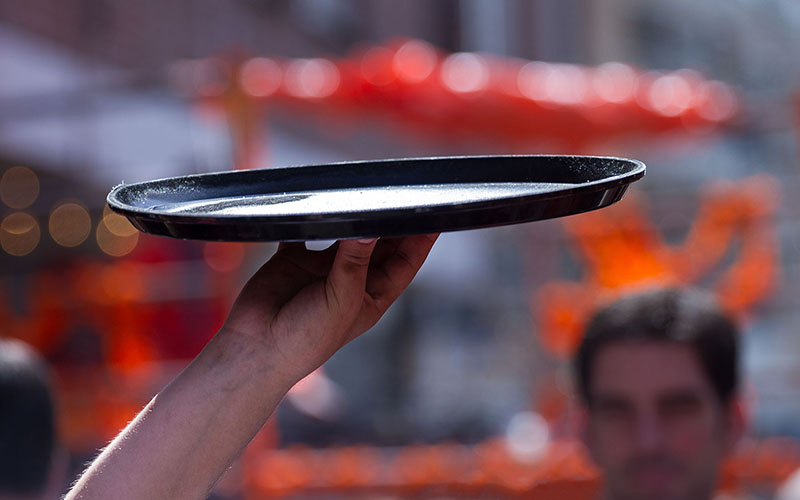
Tipped workers like waiters are paid less than the hourly minimum wage, but a group of servers in Arizona is arguing in court that they should be paid minimum wage for those parts of their jobs that don’t generate tips. (Photo by Lennart Tange/Creative Commons)
WASHINGTON – A group of Arizona restaurant servers will get another day in court to prove their claim that their employers failed to pay them sufficiently for work that should have paid them minimum wage.
A divided three-judge panel of the 9th U.S. Circuit Court of Appeals reversed a lower court decision dismissing the servers’ claims that different tasks they had to perform amounted to different jobs – one due the minimum wage of $7.25 an hour and one the $2.13 an hour for tipped workers.
While the appellate panel agreed for the most part with the lower court’s outcome, it disagreed with the way it reached that decision, saying Department of Labor guidelines were so ambiguous that the servers should be allowed to reframe their complaints.
Attorneys for the servers did not immediately return calls seeking comment Wednesday. But David Selden, who represented an International House of Pancakes franchisee in the case, said in a telephone interview that the “substance of the decision … is a victory for the employers.”
In a formal statement on the case, Selden, a senior member at the Cavanaugh Law Firm in Phoenix, said the case “involved a new DOL interpretation of the tipped employee regulations, reversing longstanding practices and interpretations involving tipped employees.”
The case consolidated nine complaints representing 14 workers, all of whom were paid the sub-minimum wage of $2.13 an hour because they earned tips in their jobs.
Under federal law, employers can claim a “tip credit” for workers who earn more than $30 a month in tips, allowing the business to pay the worker the lower hourly wage of $2.13.
But the servers argued that only part of their jobs was directly connected to the potential to earn tips. Other parts of the job – things like wrapping silverware, wiping tables, brewing tea and cutting lemons – should be paid at the higher rate because those tasks do not directly generate tips for that work, they argued.
They said that non-tipped work accounted for more than 20 percent of their time on the clock, the threshold at which they could be eligible for minimum wage for the non-tipped tasks.
But Selden said such “side work” is actually inherent to the work of serving and not separate from the servers’ job description as they claimed. He called the claim an “artificial distinction,” noting that “the restaurant experience is tip generating.”
Selden said it would be an “impossible burden for employers” to monitor the duties of servers that directly relate to tips. “They would have to have everybody wear a timeclock,” he said.
A district court judge agreed, ruling in 2015 that the servers were not working “dual jobs,” a distinction in federal regulations that would have allowed dual pay levels.
The appeals court agreed Wednesday, saying the servers cannot claim that “discrete ‘related’ tasks or duties, which were performed intermittently over the course of the day and were intermingled with … duties directed at generating tips, comprise a dual job when aggregated together over the course of a workweek.”
But the majority said that because the Labor Department regulations are ambiguous, the servers should be allowed to restate their claims in the lower court to account for the inconsistencies pointed out in Wednesday’s ruling.
In a dissent, Judge Richard Paez argued that the agency’s regulations deserved deference by the court.